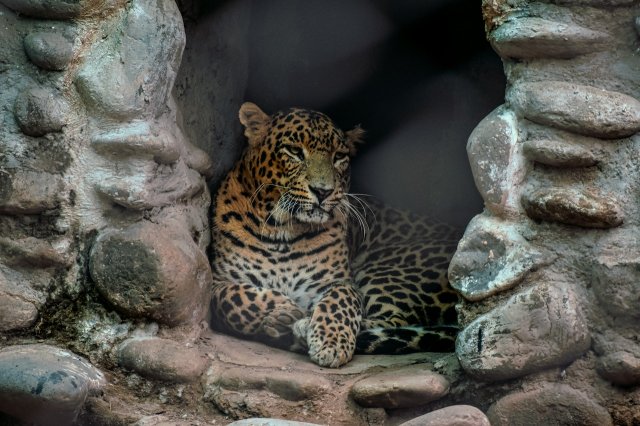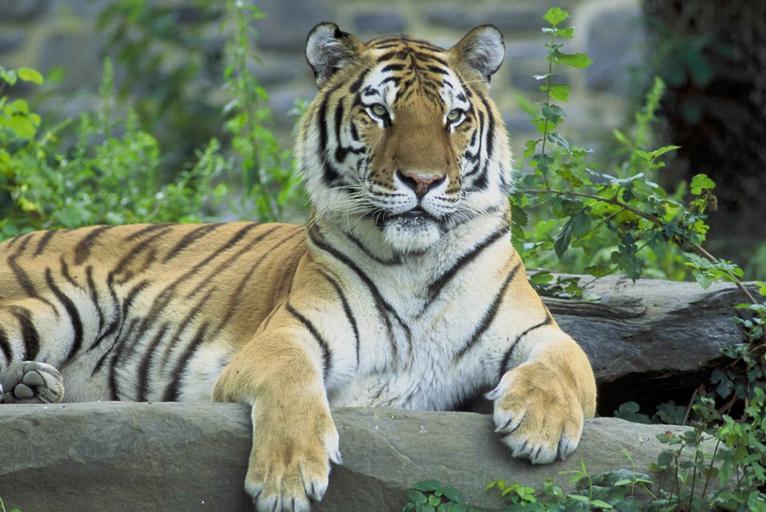Caring for Captive Tigers: Ensuring Their Well-being
Caring for Captive Tigers:
Caring for captive tigers is a crucial responsibility that requires careful attention and dedication. As these majestic creatures are kept in captivity for various reasons, it is our duty to ensure their well-being and provide them with the best possible care. This involves creating a safe and healthy environment, meeting their physical and psychological needs, and promoting their overall welfare. In this article, we will explore the importance of caring for captive tigers and the measures that can be taken to ensure their well-being.
Caring for Captive Tigers: Proper Nutrition and Diet for Captive Tigers
Captive tigers are magnificent creatures that have captured the hearts and imaginations of people all over the world. These majestic animals are often kept in zoos, sanctuaries, and other facilities for various reasons, such as conservation efforts, education, and entertainment. However, with captivity comes the responsibility of ensuring the well-being of these tigers, and one crucial aspect of their care is proper nutrition and diet.
Tigers are carnivorous animals, and their diet in the wild consists mainly of large prey such as deer, wild pigs, and even other smaller predators. In captivity, replicating this natural diet can be challenging, but it is essential for the overall health and well-being of these animals. A proper diet for captive tigers should consist of a balance of nutrients, vitamins, and minerals that are similar to what they would consume in the wild.
The first step in providing a proper diet for captive tigers is understanding their nutritional needs. Tigers require a high protein diet, with a minimum of 50% of their daily intake coming from protein sources. This protein should come from a variety of sources, including lean meats such as beef, chicken, and fish. It is crucial to note that tigers are obligate carnivores, meaning they must consume meat to survive. Therefore, a vegetarian or vegan diet is not suitable for these animals.
In addition to protein, tigers also require a significant amount of fat in their diet. In the wild, tigers consume the fat of their prey, which provides them with essential fatty acids. In captivity, this can be replicated by including fatty meats such as beef or pork in their diet. However, it is crucial to monitor the fat intake of captive tigers, as too much fat can lead to obesity and other health issues.
Caring for Captive Tigers: Another essential aspect of a tiger’s diet is bones. In the wild, tigers consume the bones of their prey, which provides them with calcium and other minerals necessary for their bone health. In captivity, this can be replicated by providing whole prey items, such as rabbits or chickens, which include bones. Alternatively, bone meal or calcium supplements can be added to their diet to ensure they are getting the necessary nutrients.
Aside from the macronutrients, tigers also require a variety of vitamins and minerals in their diet. In the wild, these are obtained through the consumption of different prey items. In captivity, it is essential to provide a diverse diet to ensure they are getting all the necessary vitamins and minerals. This can be achieved by offering a variety of meats, as well as incorporating fruits and vegetables into their diet.
It is also crucial to note that the amount of food a captive tiger requires will vary depending on their age, size, and activity level. Younger tigers and pregnant or nursing females will require more food, while older or less active tigers may need less. It is essential to work closely with a veterinarian or nutritionist to determine the appropriate amount of food for each individual tiger.
In addition to providing a balanced diet, it is also crucial to ensure that the food is of high quality. This means using fresh, high-quality meats and avoiding any spoiled or contaminated food. It is also essential to monitor the tigers’ food intake and remove any uneaten food promptly to prevent spoilage.
Caring for Captive Tigers: Proper nutrition and diet are crucial for the well-being of captive tigers. A balanced diet that includes a variety of protein sources, fat, bones, and essential vitamins and minerals is necessary to ensure these animals thrive in captivity. It is also essential to monitor their food intake and provide high-quality, fresh food to prevent any health issues. By understanding and meeting the nutritional needs of captive tigers, we can ensure their well-being and contribute to their conservation efforts.
Caring for Captive Tigers: Enrichment Activities for Captive Tigers
Captive tigers are a majestic and awe-inspiring species, but their well-being in captivity is a topic of much debate. While some argue that captivity provides a safe and controlled environment for these animals, others believe that it can lead to physical and psychological issues. In order to ensure the well-being of captive tigers, it is important to provide them with enrichment activities that mimic their natural habitat and behaviors.
Enrichment activities are designed to stimulate the physical and mental abilities of animals in captivity. For tigers, these activities are crucial in preventing boredom, stress, and other negative behaviors that can arise from being confined in a limited space. These activities also promote physical exercise, mental stimulation, and social interaction, which are all essential for the overall well-being of captive tigers.
Caring for Captive Tigers: One of the most important enrichment activities for captive tigers is providing them with a large and naturalistic enclosure. Tigers are known to be solitary animals, and in the wild, they have a large territory to roam and hunt. In captivity, it is important to replicate this natural environment as much as possible. This means providing them with a spacious enclosure that includes trees, rocks, and other natural elements for them to climb, hide, and play. It is also important to have different areas within the enclosure for the tigers to explore, as this will prevent them from becoming bored with their surroundings.
In addition to a naturalistic enclosure, it is important to provide captive tigers with a variety of toys and objects to play with. These can include balls, ropes, and puzzle feeders that require the tigers to use their natural hunting instincts to obtain their food. These toys not only provide physical exercise but also stimulate the tigers’ minds and keep them mentally engaged. It is important to rotate these toys regularly to prevent the tigers from becoming bored with them.
Another important aspect of enrichment activities for captive tigers is providing them with opportunities for social interaction. In the wild, tigers are solitary animals, but they do interact with other tigers during mating season and when raising cubs. In captivity, it is important to provide tigers with the opportunity to interact with other tigers, as this can help prevent social isolation and promote natural behaviors. However, it is important to carefully introduce tigers to each other and monitor their interactions to ensure their safety.
In addition to physical and mental stimulation, it is also important to provide captive tigers with a varied and nutritious diet. In the wild, tigers have a diverse diet that includes different types of prey. In captivity, it is important to replicate this by providing them with a variety of meats, bones, and other food items. This not only keeps the tigers physically healthy but also provides them with mental stimulation as they have to use their natural hunting instincts to obtain their food.
Caring for Captive Tigers: Enrichment activities for captive tigers should also include opportunities for them to exhibit natural behaviors. This can include providing them with access to water for swimming, as tigers are excellent swimmers in the wild. It can also include providing them with opportunities to mark their territory and scratch on trees, as they would in the wild. These activities not only provide physical exercise but also allow the tigers to express their natural behaviors, which is essential for their well-being.
In conclusion, enrichment activities are crucial for the well-being of captive tigers. These activities provide physical and mental stimulation, promote natural behaviors, and prevent boredom and stress. It is important for zoos and other facilities that house captive tigers to prioritize these activities and continuously assess and improve their enrichment programs. By providing captive tigers with a naturalistic environment and opportunities for physical and mental stimulation, we can ensure that these magnificent animals live happy and healthy lives in captivity.
Conclusion
Caring for Captive Tigers: Caring for captive tigers is crucial in ensuring their well-being. These majestic animals are often kept in captivity for various reasons, such as conservation efforts or entertainment purposes. However, it is important to prioritize their physical and mental health in these settings. This includes providing adequate space, proper nutrition, and enrichment activities to mimic their natural habitat. Additionally, strict regulations and monitoring should be in place to prevent any mistreatment or neglect. By prioritizing the well-being of captive tigers, we can ensure their survival and contribute to the conservation of this endangered species.
Read More About Tigers From Wikipedia







